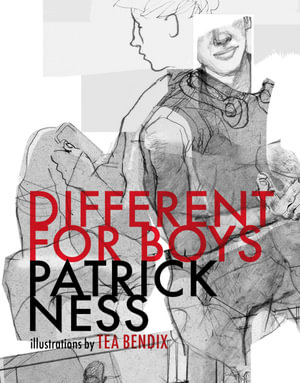Different for boys by Patrick Ness

Ant Stevenson muses on what it takes to lose your virginity if you are a boy who likes boys. There are 5 levels he defines but he muses that he has done all five, could still be a virgin and knows what loneliness means. The reader must imagine the key words in the list because they are blacked out, as he tells his friend Charlie, “It’s that kind of story. Certain words are necessary because this is real life, but you can’t actually show ‘em because we’re too young to read about the stuff we actually do, yeah?”p10. Ant, Charlie Freddie and Jack are old friends, always seated together alphabetically at St Michael’s Boys school, but Jack has recently re-joined the group in year 11 after 7 years away. Ant and Charlie play football together but Freddie is now trying to persuade Ant to play rugby with him. Jack is physically smaller and does drama and choir, falling into the stereotypical ‘camp” classification by the other boys. But all is not as it seems, Charlie and Ant have been secretly having sexual encounters; Charlie insists they are ‘just goofing around …just a release until we get girlfriends”p32 but Ant would like to kiss him, something Charlie will not allow. When Freddie keeps asking Ant to join him for Rugby training encouraged by Jack, Charlie’s jealousy gets the better of him and things fall apart. This short novella is beautifully illustrated by Tea Bendix but, disappointingly, I didn’t find the images enhanced the text. There was a nice feeling for adolescent boys and classrooms but the pictures didn’t line up with the characters except for a sulky looking Charlie. The redacted words were a bit gimmicky, a distraction as the reader imagines the forbidden words and there is no such restriction on the use of homophobic expletives. But overall this is an interesting exploration of the enduring power of friendship and acceptance in the face of jealousy and betrayal. Fans of Patrick Ness's books will embrace this one. The book treads a fine line where school libraries are concerned, the words might be removed but the story and illustrations are still about young people having sex.
Themes: LGBTQ+, Friendship, Relationships, Sexuality.
Sue Speck